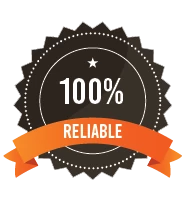The Ethics of Drinking: Responsible Consumption and the Liquor Industry’s Social Responsibilities

Discover the art of pairing whiskey with chocolate, enhancing both experiences through complementary flavors. This guide provides tips on selecting chocolates that beautifully match various whiskey profiles for an unforgettable tasting journey.
In an age where discussions about health, wellness, and social responsibility are more prominent than ever, the ethics of drinking has become a crucial topic. Responsible drinking isn’t just a personal choice; it’s a collective responsibility that extends to consumers, producers, and policymakers alike. In this article, we’ll explore the importance of responsible drinking and the ethical responsibilities of the liquor industry.
It is advisable to have alcohol/liquor drinking license in Maharashtra. You can apply online for alcohol/liquor drinking liquor license here : Click Here to Apply Now
Understanding Responsible Drinking
Responsible drinking refers to consuming alcohol in a way that minimizes harm to oneself and others. This involves understanding one’s limits, making informed choices, and recognizing the impact of drinking on health and social situations. The Centers for Disease Control and Prevention (CDC) offers guidelines on what constitutes moderate drinking: up to one drink per day for women and two for men.
The consequences of irresponsible drinking can be severe, ranging from health issues like liver disease to societal problems such as drunk driving and violence. Therefore, promoting responsible drinking is not just about individual health; it’s about fostering safer communities.
The Role of the Liquor Industry
The liquor industry plays a pivotal role in shaping drinking culture and behaviors. Manufacturers, distributors, and retailers have a unique position to influence how alcohol is perceived and consumed. Here are some of the key social responsibilities of the liquor industry:
1. Marketing with Integrity: Advertisements often glamorize drinking, which can lead to unhealthy behaviors, especially among young adults. Ethical marketing should focus on responsible consumption and avoid promoting excessive drinking or targeting vulnerable populations.
2. Education and Awareness Campaigns: The industry can support initiatives that educate consumers about responsible drinking, the risks of alcohol misuse, and resources for help. Collaborating with health organizations can enhance the credibility of these campaigns.
3. Product Innovation: As consumer preferences shift towards healthier lifestyles, the industry can respond by developing low-alcohol, non-alcoholic, and reduced-calorie options. This diversification can provide consumers with choices that align with their health goals.
4. Supporting Local Communities: Engaging with local communities through sponsorship of sober events or funding alcohol education programs demonstrates a commitment to social responsibility. It’s vital for the industry to contribute positively to the communities they serve.
5. Promoting Safe Practices: The liquor industry can advocate for practices like designated drivers, safe ride programs, and responsible service training for bartenders and servers. Encouraging safe transportation options helps reduce the risks associated with alcohol consumption.
The Role of Consumers
While the industry has its responsibilities, consumers also play a critical role in promoting a culture of responsible drinking. Here are some ways individuals can contribute:
1. Educate Yourself: Understanding the effects of alcohol, as well as the guidelines for moderate drinking, can help you make informed choices.
2. Lead by Example: Practice responsible drinking behaviors and encourage friends and family to do the same.
3. Advocate for Change: Support businesses and brands that prioritize ethical practices in their marketing and product offerings.
Conclusion
The conversation around the ethics of drinking is essential for creating a healthier, more responsible drinking culture. By fostering responsible consumption habits and encouraging the liquor industry to embrace its social responsibilities, we can work towards a future where alcohol is enjoyed safely and responsibly.
Ultimately, it’s a collective effort that involves consumers, the liquor industry, and society as a whole. By prioritizing ethics in drinking, we can enjoy our favorite beverages while ensuring the well-being of ourselves and our communities.
How to get drinking liquor license : Click Here to Apply Now










